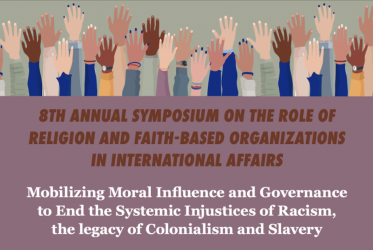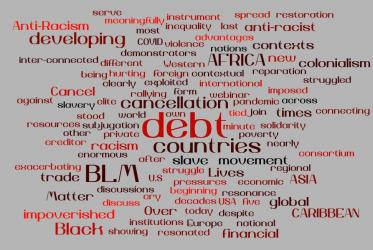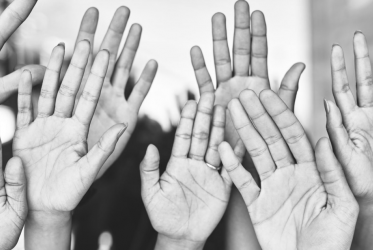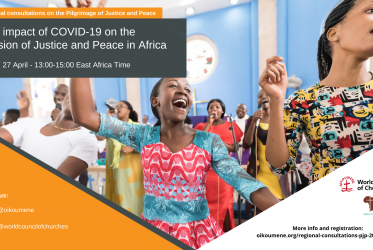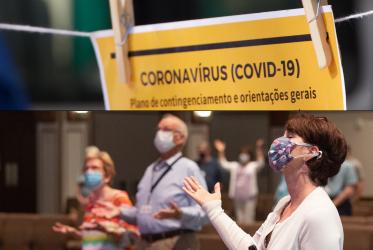Displaying 1 - 17 of 17
Webinar - “Debt Cancellation as Anti-Racism in times of Black Lives Matter protests”
22 November 2021
Online
Missing and Murdered: Addressing Femicide and Sexual and Gender-based Violence in our Global Context
25 November - 02 December 2021
Webinar will “read the signs of the times” as COVID-19 pandemic stretches into one year
15 March 2021
https://www.oikoumene.org/live
Rethinking Ecological Relationships in the Anthropocene era
11 - 13 February 2021
“Conflict Zones and Covid-19” webinar
26 November 2020

